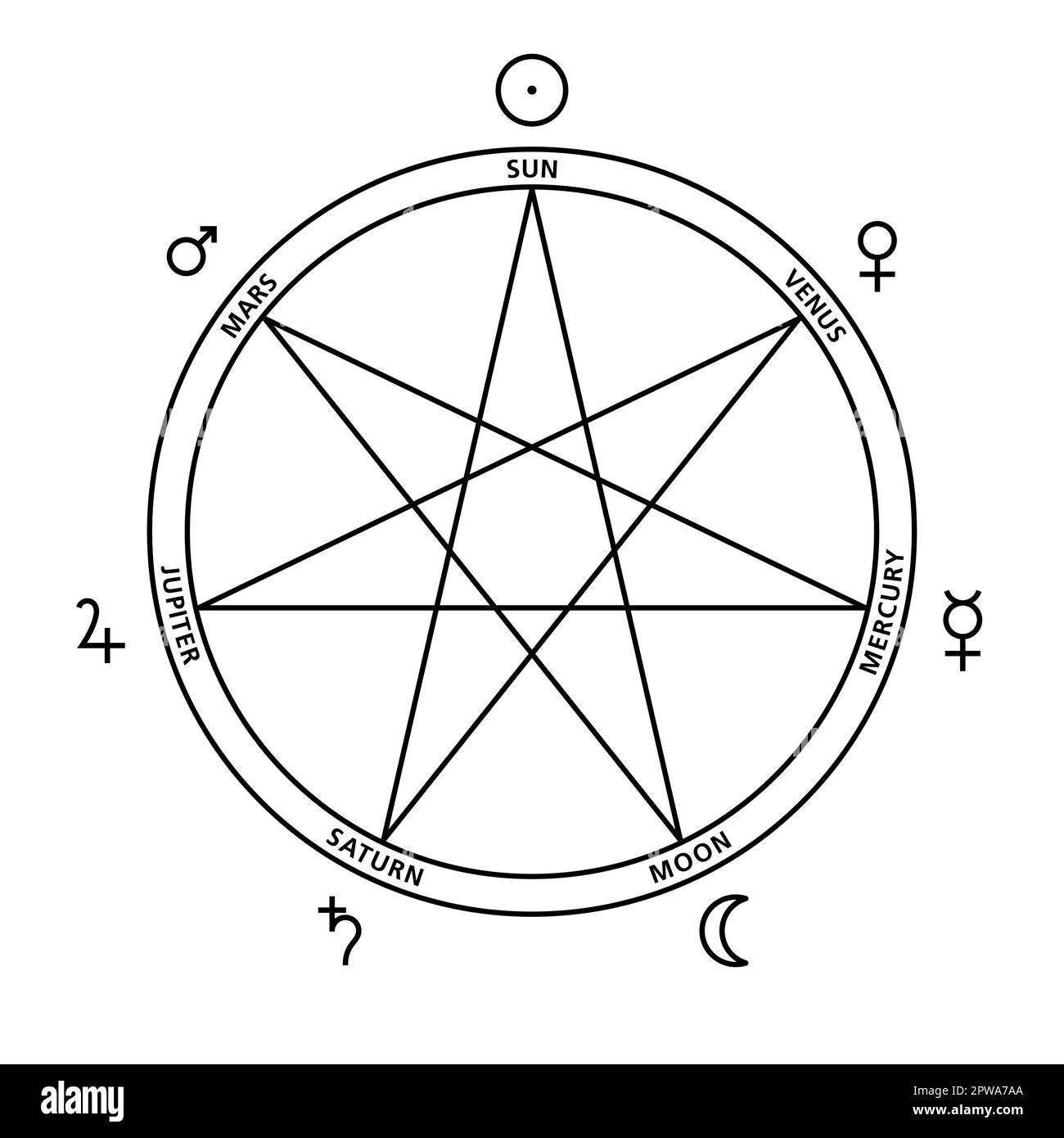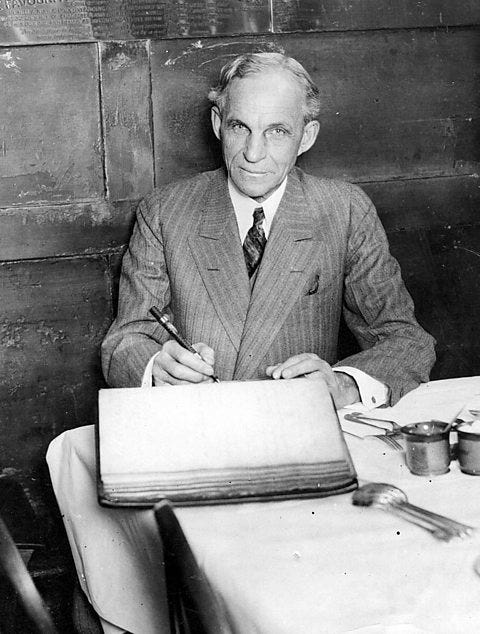4,000 years ago, the Babylonians created the concept of a 7-day week using the 7 Classical Planets.
The original order of the week was based on the most visible stars and planets; from brightest to dimmest:
The Sun, Shamash - Sunday
The Moon, Sin - Monday
Venus, Ishtar - Friday
Jupiter, Merodach - Thursday
Mercury, Nebo - Wednesday
Mars, Nergal - Tuesday
Saturn, Ninip - Saturday
But it wasn’t until the 1900s that the modern concept of a 2-day weekend was created, meaning:
Weekends are barely 100 years old.
Before that, only one day of the week was scheduled for rest and religious observation.
Adding an extra day off however, changed our relationship with rest and leisure.
So what happened?
I. Inventing The Weekend
Rest was once an obligation.
The earliest form of “weekends” were acts of religious devotion:
Muslims observed the Jumu’ah Prayer on Friday.
Jews observed Shabbat on Saturday.
Christians observed the Resurrection on Sunday.
The earliest form of a 2-day weekend came after the Industrial Revolution in the 1800s.
Those who weren’t devout religious practitioners used Sundays for rest and fun instead of prayer.
Because of this, workers showed up drunk or hungover on Mondays, decreasing productivity.
“Saint Monday” became a day for hangovers but was replaced with a half day on Saturday in exchange for showing up to work sober on Monday.
This was a win for union workers fighting for better working conditions along with:
Key events
1908: New England factory grants Fridays and Saturdays off for Jewish workers.
1926: Founder of Ford Motors, Henry Ford, officially closes his factories on Saturdays and Sundays to let his workers rest.
1940: The US adopts a 40-hour, 5-day work week to combat unemployment caused by the Great Depression.
However… weekends served another purpose.
II. Henry Ford, the Father of Consumption
Henry Ford didn’t create the 2 day weekend for the sake of his workers’ religion, health, and wellbeing.
He was notoriously anti-union and anti-Semitic.
He famously created weekends, shortened work hours, and increased wages to steal employees from competitors and boost productivity.
Simultaneously, he made his cars affordable to give workers the time and means to buy them along with other consumer products. This helped keep cash circulating in the US economy during the Great Depression.
In short, rested workers shopped more.
He argued that:
“People who have more leisure must have more clothes… They eat a greater variety of food... They require more transportation in vehicles.”
Suddenly, the weekend became a marketing opportunity, and spending became a new pastime.
As economist John Kenneth Galbraith summarized:
Businesses “create the wants [and needs] it seeks to satisfy,” and the weekend is when they are met.
And just like that: the cycle of work, rest and consumption was born.
III. How Time Became Money
Blame Friday.
Paydays strategically fall on Fridays to stimulate leisure spending on weekends.
That’s why we:
Get paid Friday → Rest and spend it Saturday/Sunday → Come back to work Monday needing more money.
Retail and advertisers capitalize on this. Think of:
New movie releases on Fridays
Major sales on weekends
Black Friday
Increased flight prices that leave on a weekend
Surge pricing at bars, clubs, restaurants, and grocery stores
Work. Rest. Reward. Repeat.
Critics labeled this cycle as a “dangling carrot” that gives employees enough time to recover without collapsing or revolting.
“Time” plays a crucial role in this - it’s split into binaries that act as a trap: work vs. rest, mundane vs. sacred, weekday vs. weekend.
Before, time was seasonal, fluid and personal. Now, it’s rigid, managed and monetized.
The clock is now the new boss - it can control a person’s life and dictate their value.
IV. The Sin of Rest
Rest was once ours.
It was NOT the opposite of work.
It was part of our natural rhythm - not something to be scheduled or earned.
Now, only those who “grind” are worthy of it.
This is why our culture surrounding rest sounds like:
“earning” a break.
“scheduling” time off.
“deserving” a vacation.
“wasting” time.
This ideology stemmed from religions like early Protestantism who believed that hard work is virtuous in the eyes of God, while doing “nothing” is spiritually dangerous.
If rest is sin, hustling is salvation.
Similarly today, rest is seen as laziness and a moral failure.
That’s why we feel guilty when we’re still.
Side hustles and never-ending self-improvement are symptoms of a society convinced that “success” means being in constant motion.
When rest is optimized and scheduled, it’s no longer rest - it’s another job.
That’s why our weekends look like:
Running errands
Doing laundry and chores
Grocery shopping
Catching up on a workout
Eating out
Binge-watching and doom-scrolling
Constant consumption. Constant stimulation.
Rest was once a sacred obligation. Now, it’s earned, optimized, and a luxury.
So…
V. Who Gets to Rest?
Our value is no longer measured by who we are, but by our output and ability to commodify ourselves.
A job isn’t enough - we need hobbies, a side hustle, a business, a platform.
If we’re not working on ourselves or our personal brand, we’re wasting our potential.
That’s why exhaustion and burnout feel like shame.
Weekends were supposed to provide relief.
Why else would we coin terms like:
TGIF (Thank God It’s Friday)
Self-Care Saturdays
Sunday Scaries
That’s because weekends became an extension of work.
So when and how do we escape?… By paying for it:
Yoga retreats, spa days, 10-step skincare routines, tech detoxes, “treat yourself” culture.
We try to heal exhaustion with (aesthetically pleasing) consumption:
Soft life, cottage core, hot girl walks, Pilates princess.
Rest was taken from us, then sold back to us.
Ironically, those privileged enough to avoid the grind can afford to rest all the time.
So who has to “earn” the ability to rest? The working class.
VI. Bringing Back the Sacred
But this modern phenomena is neither ancient nor inevitable.
Indigenous and ancestral cultures understood something we’ve lost:
Rest is holy.
Rest is routine.
Rest is ours.
They lived outside our society’s restrictive binaries regarding leisure and time. Today, they would ask questions like:
What does “lazy” mean to you?
Whose definition are you using?
Why do you feel guilty for listening to your body?
What if laziness is wisdom telling you:
“No.”
“I’m done.”
“I need something different.”
You’re worthy of feeling this way regardless of your output.
Union workers organized, demanded and went on strikes to fight for our right to rest - only for it to be repackaged as consumption 100 years later.
Resist it… by resting. Right now.
When we wait to rest, we pay for leisure through our time and productivity.
But freedom comes in the form of slowing down, trusting our intuition, and moving with intention.
Saturday was once a sacred day of rest for everyone, laid out by scripture. It was NOT a privilege given to the few who must earn it.
—






I loved reading this, resting is a form of resistance, not laziness.